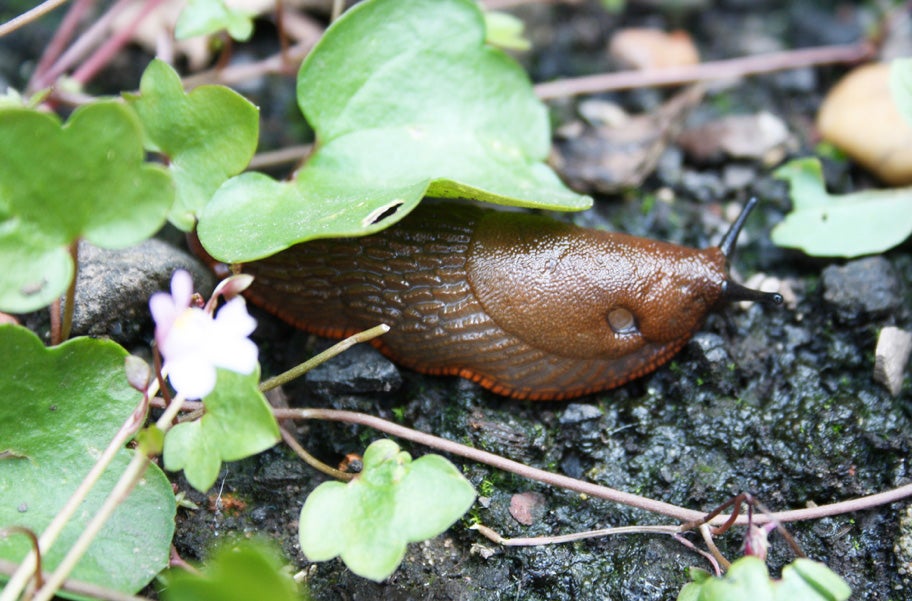How SHOULD schools deal with weeds?
ListenMike McGrath explains how to use epsom salts in your garden, when it’s time to give up on your Japanese maple tree, how to eliminate slugs safely, the best way to achieve a clover-free lawn, why you should not use pure compost to start your seeds, and how schools SHOULD manage their weeds. Plus, Mike speaks with plant pathologist Dr. Meg McGrath about Basil Downy Mildew.
Question of the Week:
“I’m a parent with children in the Lower Merion School District, which uses Roundup as part of its weed-control program. I was upset to learn this, given the increasing evidence that Roundup may contribute to a host of chronic illnesses. So I and other concerned parents met with the district’s IPM coordinator, who asked us to offer alternatives to Roundup. I suggested flame-weeders, and he responded that the district is not allowed to use anything with an open flame. Do you have any other suggestions?”
— Miriam in Narberth, PA
Learn how schools SHOULD deal with weeds »
Highlights from show for June 28, 2014:
Using epsom salts in your garden
David from Stella, North Carolina has a unique question about epsom
salts; can they help rejuvenate a lifeless garden bed? Mike admits he has never really heard of spreading the salts around the entirety of the garden, as it is a chemical. Mike tells David not to worry as they are harmless and that he has heard of people putting a tablespoon of epsom salts around the bases of veggies such as tomatoes, peppers, and cucumbers as the phosphorus that is released will encourage great plant growth! Mike tells David if he DOES use the salts to make sure he covers it with additional soil and let science take its course. Mike urges David to shred his leaves and make a big pile, mix in his coffee grounds and egg shells, no more tilling or epsom salts. Then to spread it directly on top of the beds; Mike ensures David he will have tasty vegetables next year.
When to let your Japanese maple go
Peter from Doylestown, PA planted a Japanese maple that is truly struggling. This tree has had the top and one side removed by natural causes and there is only a stump left with a few pieces of growth. Mike says Peter’s tree is dead, unfortunately, even if it has a few green sprouts sticking out. Mike tells Peter to ditch his dead tree and suggests digging it up and removing the whole thing. Then be on the lookout for nursery fall sales to get a new Japanese Maple. Fall is the best time to plant; spring is the second best, Mike informs Peter. Unfortunately, his old Japanese maple is a goner, but a new one will await him at his local nursery!
Special guest: Dr. Meg McGrath
Mike takes a very special phone call from Dr. Meg McGrath, plant pathologist and no relation of course. Meg tells us about a scary new disease called Basil Downy Mildew, which is destroying basil plants. Meg goes through some of the varieties of basil that might be safe to plant and those to avoid. She also gives listeners tips on ways to see if a plant they are buying is infected.
Eliminating slugs safely
Maryanne from the Philadelphia area has some issues with her collection of rose bushes she has had for many years. Maryanne is noticing numerous bite marks in the leaves and is wondering what kind of creature would eat her roses. Mike says there is a species of insects called leaf cutter ants and leaf cutter bees that could be using her rose plants as nesting materials, but after some sleuthing Mike thinks slugs are the culprits. Mike suggests putting beer in little dishes to surround the rose bushes and the slugs will eventually die in a drunken stupor. Mike strongly advises Maryanne to get Sluggo or Escar-GO!; both are clever slug-pun killers that one can buy at any local gardening store. Maryanne’s rose problem is solved; ants nor bees were eating up her roses, but the pesky slugs strike again!
Clover-free lawn
Chuck from Wilmington, Delaware has issues with expanding clover in his lawn. For over 10 years, these annoying plants have popped up everywhere in his backyard. Chuck spreads corn gluten on it in the spring; but does nothing in the fall. Mike reminds Chuck that the Clover is a sign of a lawn that is underfeed and over-watered. Clover is a nitrogen fixing legume; which converts itself to plant food. In one sense, clover is not always a problem, it can act like a plant food along with lawn clippings. Up until the 1960’s clover was actually included in grass seeds because people enjoyed the flowers and the look of clovers. Corn Gluten meal should be applied at the very end of summer to prevent the clover from germinating. Mike advises that Chuck re-seed next fall for a great lawn.
Don’t use pure compost for seed-starting
Melodie from Upper South Hampton PA, has leaf mulch that she wants to turn into leaf compost for next year. Her seeds were stunted and they did not grow at all. Never use pure compost as a seed starter, says Mike. Use a seed starting mix; which is already pretty light and buy the lightest bag you can find. Peralite should be mixed into the seed starting mix. The lighter, the better and the better your transplants will look with a great root system. Melodie admitted she was covering her shredded leaves with a tarp and Mike warns her to never cover the leaves with a tarp, it needs to be exposed to the air.
WHYY is your source for fact-based, in-depth journalism and information. As a nonprofit organization, we rely on financial support from readers like you. Please give today.





